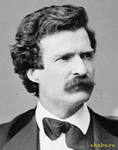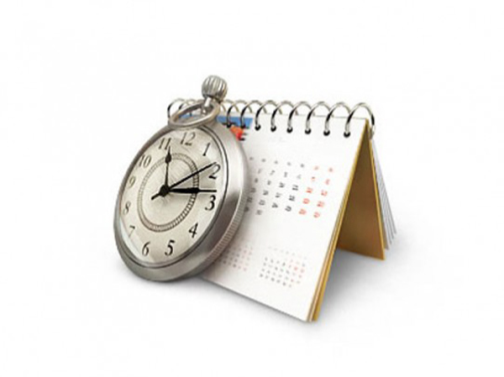
- •Е. А. Таушканова, а. А. Хлызова conversational topics (Part 1)
- •1. Read Text 1a and translate it using Vocabulary. Text 1a. Let me introduce myself
- •Vocabulary
- •Topical vocabulary
- •2. Study Topical Vocabulary and make up sentences using the information from the table.
- •3. Introduce yourself. Use the questions below as a plan.
- •4. In pairs ask your group mates questions about them. Meet as many people as you can. Then describe one of your friends. Use the active vocabulary of the unit.
- •5. Read Text 1b and translate it. Text 1b. My biography
- •6. Answer the following questions.
- •1. Read Text 2a and translate it using Vocabulary. Text 2a. My week day
- •Vocabulary
- •Topical vocabulary
- •2. Write one sentence with each word.
- •3. Study Topical Vocabulary and translate words and word combinations into English.
- •4. Tell about your typical day. Use the questions below as a plan.
- •5. Read Text 2b and translate it. Text 2b. Nick’s usual working day
- •6. Answer the following questions.
- •7. Write about:
- •1. Read Text 3a and translate it using Vocabulary. Text 3a. Ural Federal University
- •Vocabulary
- •Topical vocabulary
- •Text 3b. Functions of the Universities
- •7. Write an essay (300−350 words) about the problems of higher education in our country.
- •1. Read Text 4a and translate it using Vocabulary. Text 4a. Higher education in Great Britain
- •Vocabulary
- •Topical vocabulary
- •2. Read the text and tell about studying at Cambridge University. Text 4b. Cambridge
- •3. Find in text 4b equivalents to the words.
- •4. True or false?
- •5. Read the text about Oxford University and translate it. Text 4c. Oxford today − an Ancient University
- •In the modern world
- •6. Translate into Russian using text 4c.
- •7. Translate into English using text 4c.
- •8. Answer the following questions using text 4c.
- •9. Read the text about higher education in the usa Text 4d. Higher Education in the usa
- •15. Find the information and tell your group mates about one of the most famous universities in the United States. You can use the additional literature, magazines, newspapers or the Internet.
- •16. Use the Internet to find the information on one of the topics about higher education in the uk. Make a presentation or a report to tell the rest of the students about:
- •1. Read Text 5a and translate it using Vocabulary. Text 5a. I want to be an engineer
- •Vocabulary
- •Topical vocabulary
- •2. Translate these sentences into English.
- •3. Study Topical Vocabulary and speak about your future profession. Use the following questions as a plan.
- •4. Read and translate Text 5b into Russian. Text 5b. The future of the engineering profession
- •5. Read and translate Text 5c into Russian. Text 5c. Who do we call a ‘Manager’?
- •6. Answer the questions.
- •7. Discuss with your partner advantages and disadvantages of your future profession.
- •8. Your e-mail friend, a student of a technical university, asks you if it is possible for him to get a job in Russia. Write a letter to him/her describing possibilities of working in our country.
4. In pairs ask your group mates questions about them. Meet as many people as you can. Then describe one of your friends. Use the active vocabulary of the unit.
5. Read Text 1b and translate it. Text 1b. My biography
after Mark Twain
I was born on the 30th of November, 1835, in the village of Florida,
Missouri. My father was John Marshal Clemens.
was born on the 30th of November, 1835, in the village of Florida,
Missouri. My father was John Marshal Clemens.
According to tradition some of my great-great parents were pirates and slave traders − a respectable trade in the 16th century. In my time I wished to be a pirate myself.
Florida contained a hundred people and when I was born I increased the population by one per cent. It had two streets and a lot of lanes. Both the streets and the lanes were paved with the same material − black mud in wet times, deep dust in dry. Most of the houses were of wood − there were none of brick and none of stone. Everywhere around were fields and woods. My uncle was a farmer. I have never met a better man than he was. He was a middle-aged man whose head was clear and whose heart was honest and simple. I stayed at his house for three months every year till I was thirteen years old. Nowhere else was I happier than at his house. He had eight children and owned about fourteen Negro slaves whom he had bought from other farmers. My uncle and everyone on the farm treated the slaves kindly. All the Negroes on the farm were friends of ours and with those of our own age we were playmates. Since my childhood I have learned to like the black race and admire some of its fine qualities. In my school days nobody told me that it was wrong to sell and buy people. It is only much later that I realized all the horror of slavery.
The country school was three miles from my uncle's farm. It stood in a forest and could take in about twenty five boys and girls. We attended school once or twice a week. I was a sickly child and lived mainly on medicine the first seven years of my life.
When I was twelve years old my father died. After my father's death our family was left penniless. I was taken from school at once and placed in the office of a local newspaper as printer's apprentice where I could receive board and clothes but no money.
For ten years I worked in printshops of various cities. I started my journalistic life as a reporter on a newspaper in San Francisco. It was then that I began to sign my publications by my penname Mark Twain.
6. Answer the following questions.
1. In what state was Samuel Clemens born?
2. What were the great-great parents of Mark Twain?
3. What did Mark Twain want to be?
4. What were the streets and lanes of Florida paved with?
5. How does the author describe his uncle?
6. How many slaves did Mark Twain's uncle own?
7. What was the author's attitude toward slavery?
8. Was Mark Twain a healthy boy?
9. When did the author start his career of a writer?
7. Write an e-mail letter to your new friend. In your letter tell him/her about yourself.
TOPIC 2. MY WORKING DAY

Warm-up
1. Is it difficult to be a first-year student?
2. Do you live with your parents or in a students’ hostel?
3. How many lessons a day do you have?
4. How do you spend your free time?
